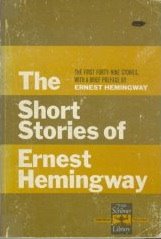 The landscape is barren. Ash constantly falls from the gray sky. When it snows the snowflakes are gray, and when it rains the rain washes away nothing. There is no sustainable life. Only a handful of people survive on America's continent, and there is no knowledge of the outside world or if anything is across the ocean. Through it all twists a road, a road that leads to the coast. On it are a man and his little boy, and because they are alive there is hope.
The landscape is barren. Ash constantly falls from the gray sky. When it snows the snowflakes are gray, and when it rains the rain washes away nothing. There is no sustainable life. Only a handful of people survive on America's continent, and there is no knowledge of the outside world or if anything is across the ocean. Through it all twists a road, a road that leads to the coast. On it are a man and his little boy, and because they are alive there is hope.This is the setting for Cormac McCarthy's haunting novel, The Road, about a man and his son's journey along a road in a searing apocalyptic world. The man has seen the world change, while his son has only known the barren, ashen world they live in. They are the past and the future. While electronics scatter the stores, the food shelves are empty, and everything they cross is some depressing relic of the past. The boy sees this and all he knows is this, his strong intuition makes him the realist of the two, and he often has to tell his father to do what's best for both of them. The man, on the other hand, exercises blind hope. He's seen what can be, he's known a better life, he wants that for his son. And so they struggle. The dynamic is astounding.
McCarthy never lets on how the world got this way, only hints at it, but that becomes beside the point. What really matters is this man and his son, their survival, their constant struggle to reach the coast, their love for each other, their hope. What becomes of it is a multilayered allegory about love and hope in the most desperate times, about the human condition - its faults, and its strengths - and the power of the Earth.
I was completely enthralled with this novel, which isn't much of a compliment to McCarthy. It's something you expect when you read him. He is, in my opinion, the best American writer alive today. His writing is so powerful, so rich in meaning, and his characters as real as if you came upon them in the street (most of them would make you cringe, though, given how hardened and tough they have become due to the circumstances of their lives).
McCarthy writes like a poet. His words are perfect, each one plucked delicately out of the universe and put on the page as if no other word could live there. You read a McCarthy sentence or paragraph or section and you get a feeling, even if the words might make little sense. He is a master of creating tone, and a brilliant wordsmith.
So, what can I say, I highly recommend this novel, it's unbearably heartwrenching at times and full of life at others. You might weep a little, you might laugh, you'll definitely emote. It's McCarthy's most accessible novel, and also one of his best. One last recommendation: if you find a section that you really like, read it out loud, hear the words, and how their combination creates a feeling. Just like a good poem, listening to it sometimes completely changes it. And it's usually for the better.



